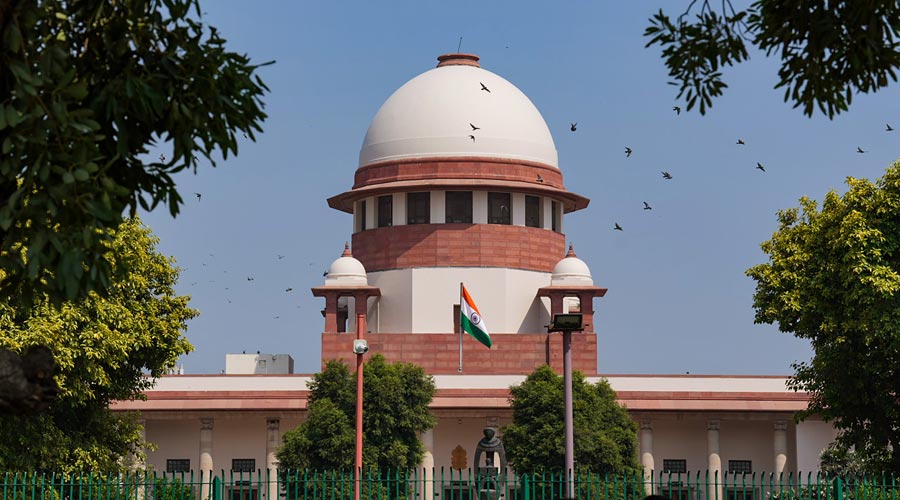Nithyakalyani Narayanan. V
Recently, the Supreme Court ruled that persons who disobey orders and undertakings given to courts deserve no mercy. The ruling directed courts to be slow to accept apologies offered by such unscrupulous litigants who use it as a “potent weapon” and a “legal trick” to wriggle out of responsibility.
The court was hearing a case from the Gujarat High Court which sentenced five persons under the Contempt of Courts Act, 1971, for breaching an oral undertaking given to the court in 2015. The July 2022 High Court sentenced three persons to two months of simple imprisonment and two others to pay ₹1 lakh in lieu of sentencing. The court imposed a fine of ₹2,000 and cancelled all sale agreements made in violation of the undertaking.
Upholding the HC order, a division bench of Justice JB Pardiwala and Justice Manoj Misra opined, “The sanctity to judicial proceedings is paramount to a society governed by law. Otherwise, the very edifice of democracy breaks and anarchy reigns.”
The Court directed the contemnors to undergo the sentence as awarded by the HC and held that “The 1971 Act intends to secure confidence of the people in the administration of justice by disciplining those erring in disobeying the orders of the Court/undertaking given to court. The litigating public cannot be encouraged that such a situation can continue or the court will not rise to the occasion to book people violating its orders.”
The Bench held that “There ought not to be a tendency by courts to show compassion when disobedience of an undertaking or an order is with impunity and with total consciousness.”
The bench said that the lawyers who proceeded for contempt of court realised that they had a very potent weapon in their hands in the form of an apology. The Court took judicial notice of the fact that over a period of time, courts have shown “undue leniency and magnanimity” towards contemnors.
Justice Pardiwala stated, “This lenient attitude shown by the courts over a period of time has actually emboldened unscrupulous litigants to disobey or commit breach of the order passed by any court or any undertaking given to the court with impunity.”
The four contemnors accepted that their action in selling off the property in breach of the undertaking to the court was a big mistake – “The law is very clear that the court should not get compassionate and dilute an indictment and not follow it with conviction. The fact that the appellants have committed contempt is not in doubt. The law enjoins that a punishment must follow.”
The Court further said that “Apology is not just a word. The court should not accept the apology when it appears that saying sorry is nothing but a legal trick to wriggle out of responsibility. In the absence of a deep ethical act of introspection, self-introspection, atonement and self-reform. any apology will be farce”.
Referring to previous judgments, the ruling reiterated that no court is bound to accept as a matter of course – “Although, the apology may be unconditional, unqualified and bona fide, yet, if the conduct is serious which has caused damage to the dignity of the institution the same need not to be accepted.”
In this case, the Supreme Court was convinced that the apology offered by the contemnors was a “gamble” and a “calculated risk” to escape legal consequences for their alleged act of contempt after pocketing a sizeable amount towards the sale consideration obtained from the purchasers.



